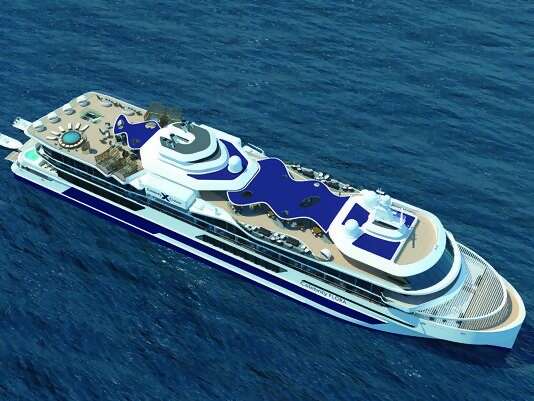You will visit the following 7 places:

Cabo San Lucas
Cabo San Lucas, commonly called Cabo in American English, is a city at the southern tip of the Baja California Peninsula, in the Mexican state of Baja California Sur. Cabo San Lucas together with San José del Cabo is known as Los Cabos. Cabo is a varied destination that captures the essence of Baja Peninsula in its many resorts, championship golf courses, world-class dining and amazing outdoor activities. The city also houses a range of wildlife including rays, sharks, birds like eagles and a range of fish like mahi-mahi (dorado) and stripe marlin. For much of its history, Cabo was a sleepy, remote fishing port which was generally accessed either by ship or a three-hour drive from La Paz. In 1977, the airport to the north of San Jose del Cabo was expanded to handle jet aircraft and international flights, thereby launching the transformation of Cabo into one of the most popular resort destinations in Mexico.

Puerto Vallarta
Puerto Vallarta is a Mexican beach resort city situated on the Pacific Ocean's Bahía de Banderas. The 2010 census reported Puerto Vallarta's population as 255,725 making it the fifth largest city in the state of Jalisco, and the second largest urban agglomeration in the state after the Guadalajara Metropolitan Area. The City of Puerto Vallarta is the government seat of the Municipality of Puerto Vallarta which comprises the city as well as population centers outside of the city extending from Boca de Tomatlán to the Nayarit border (the Ameca River). Around the Bay, marvellous beaches, lush jungles and sparkling waterfalls offer many opportunities for the adventurous while five star resorts, world-class shopping and gourmet restaurants satisfy even the most sophisticated traveller. Stretching from the south end of Old Town to central downtown, a newly extended and refurbished boardwalk along the ocean, called the Malecon, passes by any number of shops, restaurants, and hotels, and often plays host to mimes, break-dancers, clowns and artists.

Los Angeles
Los Angeles, Spanish for "The Angels", is the most populous city in California and the second most populous in the United States, with a population of 4.06 million on a land area of 498.3 square miles (1,290.6 km2). It is the focal point of the larger Los Angeles-Long Beach Riverside combined statistical area, which contains nearly 17.8 million people. This makes it the 12th most populous metropolitan area in the world. Los Angeles is also the seat of Los Angeles County, the most populated and one of the most multicultural counties in the United States. The city's inhabitants are referred to as "Angelenos".

Fort Lauderdale
Fort Lauderdale is a city in the U.S. state of Florida, 28 miles (45 km) north of Miami. The city is a popular tourist destination, with an average year-round temperature of 75.5 °F (24.2 °C), and 3,000 hours of sunshine per year. Greater Fort Lauderdale which takes in all of Broward County hosted 12 million visitors in 2012, including 2.8 million international visitors. The district has 561 hotels and motels comprising nearly 35,000 rooms. Greater Fort Lauderdale has over 4,000 restaurants, 63 golf courses, 12 shopping malls, 16 museums, 132 nightclubs, 278 parkland campsites, and 100 marinas housing 45,000 resident yachts. Fort Lauderdale is named after a series of forts built by the United States during the Second Seminole War. The forts took their name from Major William Lauderdale (1782–1838), younger brother of Lieutenant Colonel James Lauderdale. William Lauderdale was the commander of the detachment of soldiers who built the first fort.

Cartagena
Cartagena is Colombia's most famous tourist destination on the Caribbean coast. The city is renowned for its colonial and colourful architecture. With a tropical climate, the city is also a popular beach destination. The city was founded on June 1, 1533, and named after Cartagena, Spain, itself after the original Carthage in Tunisia. However, settlement in this region around Cartagena Bay by various indigenous people dates back to 4000 BC. During the colonial period Cartagena served a key role in administration and expansion of the Spanish empire. It was a center of political and economic activity due to the presence of royalty and wealthy viceroys. In 1984 Cartagena's colonial walled city and fortress were designated a UNESCO World Heritage Site.

Colon









